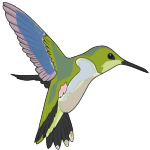Motor Coordination and Play
The decline in motor coordination in children and the importance of active play.
The world for children has changed a lot since I was a child (and I am not THAT old. I promise...) . When I was a child the main conversation starter with other kids was ”What shall we play?“ Now, time and time again I hear kids saying ”What shall we do?.“ This, to me reflects the change in the way in which we (society) see the role of play in our children’s lives. For various reasons (such as traffic, crime and fear of injury, working parents), parents are reluctant to let their children play- particularly outdoors. Some of these are valid concerns, but it has (in my opinion) caused us to restrict children’s opportunities to play and change the way we view children’s play overall. There has been a shift from play being seen as something children need to do, to play being regarded as a break from what children have to do.
Many extra- curricular activities promote the benefits of the activity for the child’s physical, cognitive or mental health, and there is no doubt that the activity probably does have those benefits (for example any ball sport is going to develop the child’s hand-eye coordination if they practise regularly enough). However, this can cause parents to believe that if their child does not participate in every activity they will be missing out or fall behind on some essential part of their development. This in turn can lead to children being over-scheduled with extra-curricular activities leaving little or no time for unstructured play which is perceived as a waste of time or an ’optional extra.‘
However, what is not so widely promoted is that play also has many benefits to a child’s physical, cognitive and mental health and often more than any extra-curricular activity. According to the literature, when children play (particularly outdoors) they challenge themselves physically more. They are more active than when in an adult led activity. They also build social skills and resilience which are essential to their livelong mental health. When an adult is leading an activity, the skill level will usually be set at the ability of the average child in the class, therefore all children will not be challenged to their full abilities. The children might also take turns at a particular skill (such as shooting penalties) and therefore be less active than if they had, for example spent an hour playing tag with their friends or on a playground.
Playing outdoors is especially beneficial in developing motor skills as natural environments (such as woods, grass, sandy beaches etc) are more uneven than man made surfaces and usually larger, so children’s motor skills will naturally be more challenged when playing outdoors rather than indoors.
There is a growing body of evidence (and certainly is something I‘ve noticed in my work as an Occupational Therapist) that there has been a general decline in children’s motor skills and muscle strength in recent years (Cohen et al., 2011; Hanscom,2016) which is attributed to the more sedentary lifestyles of children today. In addition to poorer motor skills, a decline in physical activity has implications not only for obesity but socially too as children with poorer motor skills are less likely to engage in social play with their peers than those with greater motor competence(Bar-Haim and Bart, 2017).
A child who has motor coordination difficulties may not like (or be able) to participate in organized sports, but may be more willing to practise a skill if the activity is perceived as play- such as climbing a tree, building a fort, throwing a frisbee or ball to a dog etc. This can be just as beneficial to their motor skills and social skills as an organized sporting activity might be. Children require at least 60 minutes of vigorous exercise every day in order to be healthy. The easiest and cheapest way for them to achieve this is through play. So, basically my message to parents is to believe in the power of play!
References:
- Bar-Haim.Y & Bart.O (2006) “Motor function and Social Participation in Kindergarten Children” Social Development, 15, 296-310.
- Cohen.D, Voss. C, Taylor.M, Delextat.A, Ogunleye.A & Sandercock. G (2011) Ten Year Secular changes in muscle fitness in Engligh Children . Acta Paediatrica retrieved on 20.11.18 from https://www.essex.ac.uk/-/media/documents/research/muscle-strength... · PDF file
- Hanscom. A (2016) Balanced and Barefoot How unrestricted outdoor Play makes for Confident and Capable Children. New Harbinger Publications, Inc. U.S.A.
